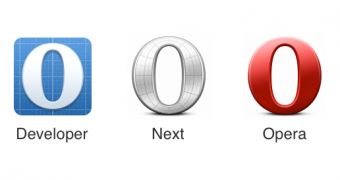Opera 16, the second major version of the new Chrome/Chromium-based browser, has landed in the beta channel, or the Next channel as the Norwegian company calls it.
Not surprising anyone used to Firefox or Chrome rapid releases, there aren't that many changes or improvements in the latest build. That may be disconcerting to fans hoping to see some of the features they've been missing in the new browser.
The only notable addition is under-the-hood stuff, like support for Geolocation, or features that only a few people use, like Windows jump-lists or the form auto-filler.
"Opera and Opera Next run as separate installs so you can still use Opera 15 while running Opera Next 16 side by side to try out the new things. Opera Next 16 will also automatically update itself so you'll always have the latest build," the browser maker explained.
There is one interesting addition, a flags page, very similar to the Chrome Flags section. You'll find quite a few experiments in there, 56 in fact. They don't all work for all users, some are platform-dependent, but it's still a very welcomed improvement, especially for the tinkering Opera users.
Most of the flags are useful to web, app, or Opera developers and not to most regular users, unless they're experiencing problems. Things like WebGL can be disabled, compositing enabled for all pages, and so on. There's even an option to enable the experimental QUIC protocol.
But this is also where you'll find the new features that aren't quite ready to be part of the proper build. Support for Opera Sync, which is still experimental, can be enabled, for example.
Presumably, future additions, like native bookmark support or anything else the browser maker comes up with, will first be available via the flags section, to give developers a chance to polish them before making them available to all.
"Usually, the first few comments are about the roadmap, so here are the features we’re currently working on: bookmarks, synchronization (Opera Link), enhancements in tabs handling (ie pinning and visual tabs) and themes. Our new rapid release cycle means that you should see the first cut of some of these in a few weeks’ time," Opera added.

 14 DAY TRIAL //
14 DAY TRIAL //